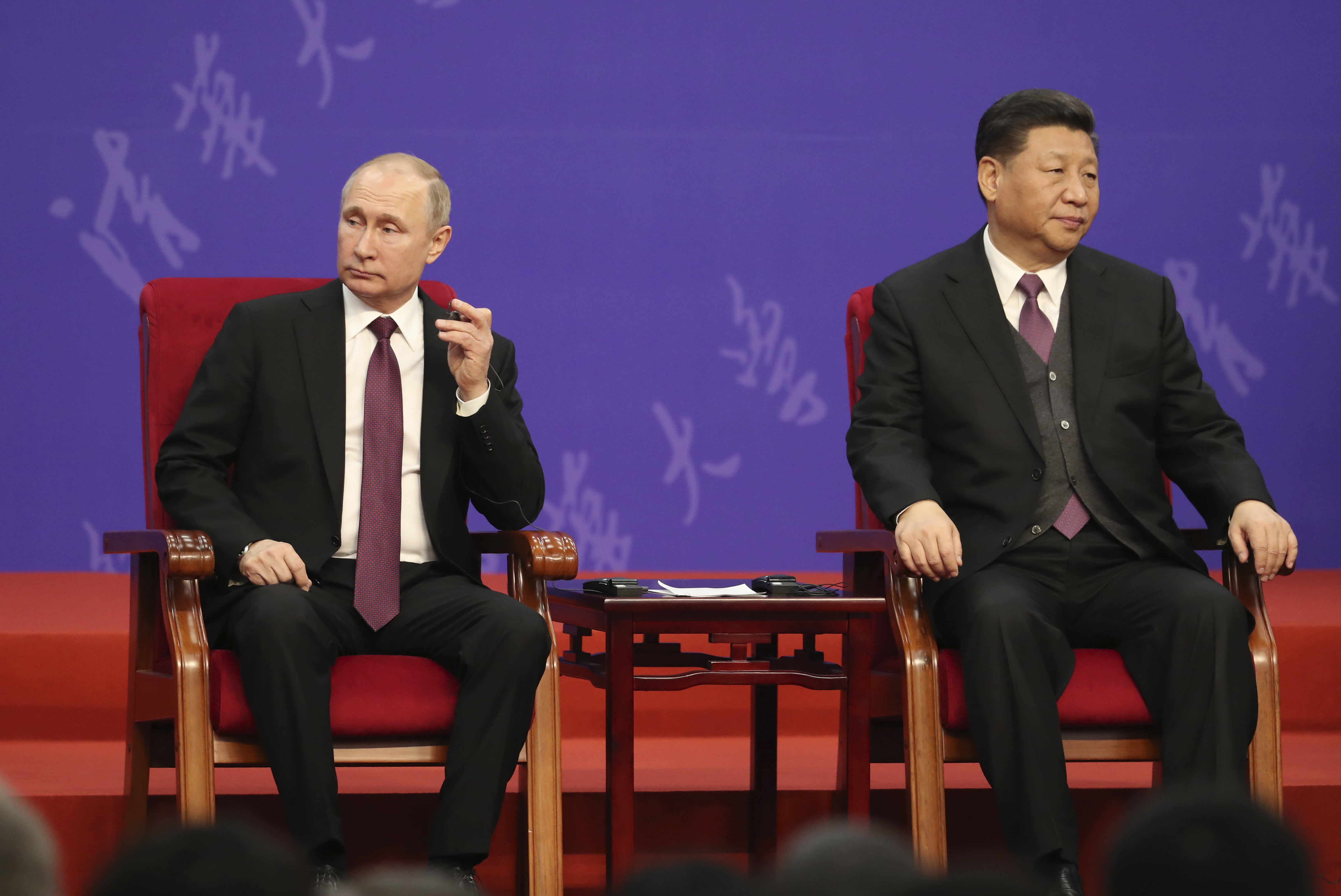Russia is trying to “undermine” presumptive Democratic nominee Joe Biden’s candidacy, while China and Iran are against President Donald Trump‘s reelection, a leading U.S. intelligence official said Friday.
The analysis of the three U.S. adversaries’ alleged interference efforts came in a statement from William Evanina, director of the National Counterintelligence and Security Center, who said he released the information to help Americans “play a critical role in safeguarding our election.”
While many foreign actors have views on who should hold the White House, “We are primarily concerned about the ongoing and potential activity by China, Russia, and Iran,” Evanina said.
He warned that “foreign states will continue to use covert and overt influence measures in their attempts to sway U.S. voters’ preferences and perspectives, shift U.S. policies, increase discord in the United States, and undermine the American people’s confidence in our democratic process” ahead of the Nov. 3 election.
“We are all in this together as Americans,” Evanina said in the statement. “Our election should be our own. Foreign efforts to influence or interfere with our elections are a direct threat to the fabric of our democracy.”
William Evanina, Director of the National Counterintelligence and Security Center, answers a reporters question in Washington, DC.
Bill O’Leary | The Washington Post | Getty Images
At a press conference Friday evening, Trump himself pushed back on the findings of his own intelligence agencies.
“It could be,” Trump began when a reporter asked if he believed the assessment that Russia was attempting to meddle in the election against Biden.
But he quickly added: “I think that the last person Russia wants to see in office is Donald Trump.”
When the reporter noted that the statement from U.S. intelligence in fact says the opposite, Trump shot back, “Well, I don’t care what anybody says.”
“Nobody with any common sense would say” that Russia wanted him to win, Trump said.
Asked what he planned to do about the alleged interference, Trump said, “Well, we’re going to look at it very closely.”
The alleged preferences of Russia, China and Iran reflect how Trump and Biden have talked about them on the campaign trail.
Trump in nearly every recent speaking appearance has criticized Beijing for its handling of the coronavirus, which first appeared in the Chinese city of Wuhan. The virus has since grown to a pandemic that has taken an immense toll on the United States: More than 4.88 million cases and at least 160,111 deaths from Covid-19 have been reported in the U.S., according to data from Johns Hopkins University.
The Trump administration has also regularly condemned Iran and attacked it with punishing economic sanctions.
Biden, meanwhile, has slammed Trump for failing to address Russian threats abroad – and his campaign continued that line of attack in response to Evanina’s statement.
“Donald Trump has publicly and repeatedly invited, emboldened, and even tried to coerce foreign interference in American elections,” longtime Biden advisor Tony Blinken said in the response.
Evanina’s statement said that China wants Trump to lose in part because Beijing sees him as “unpredictable.”
“China has been expanding its influence efforts ahead of November 2020 to shape the policy environment in the United States, pressure political figures it views as opposed to China’s interests, and deflect and counter criticism of China,” it said.
On Russia, U.S. intelligence assesses that the Kremlin “is using a range of measures to primarily denigrate former Vice President Biden and what it sees as an anti-Russia ‘establishment.'” Russian officials are “spreading claims about corruption” to try to “undermine” Biden and the Democratic Party, the statement said.
“Some Kremlin-linked actors are also seeking to boost President Trump’s candidacy on social media and Russian television,” it said.
Evanina’s statement also says that Iran “seeks to undermine U.S. democratic institutions, President Trump, and to divide the country in advance of the 2020 elections.”
Iran is likely focusing on online influence operations, including social-media disinformation campaigns and promulgating anti-American content.
“Tehran’s motivation to conduct such activities is, in part, driven by a perception that President Trump’s reelection would result in a continuation of U.S. pressure on Iran in an effort to foment regime change,” Evanina said.
In response to the intelligence assessment, National Security Council spokesman John Ullyot said the U.S. “will not tolerate foreign interference in our electoral processes and will respond to malicious foreign threats that target our democratic institutions.”
“The United States is working to identify and disrupt foreign influence efforts targeting our political system, including efforts designed to suppress voter turnout or undermine public confidence in the integrity of our elections,” Ullyot said.
The Trump campaign used the report as fodder for another attack on Biden. “We don’t need or want foreign interference, and President Trump will beat Joe Biden fair and square,” said campaign spokesman Tim Murtaugh.

